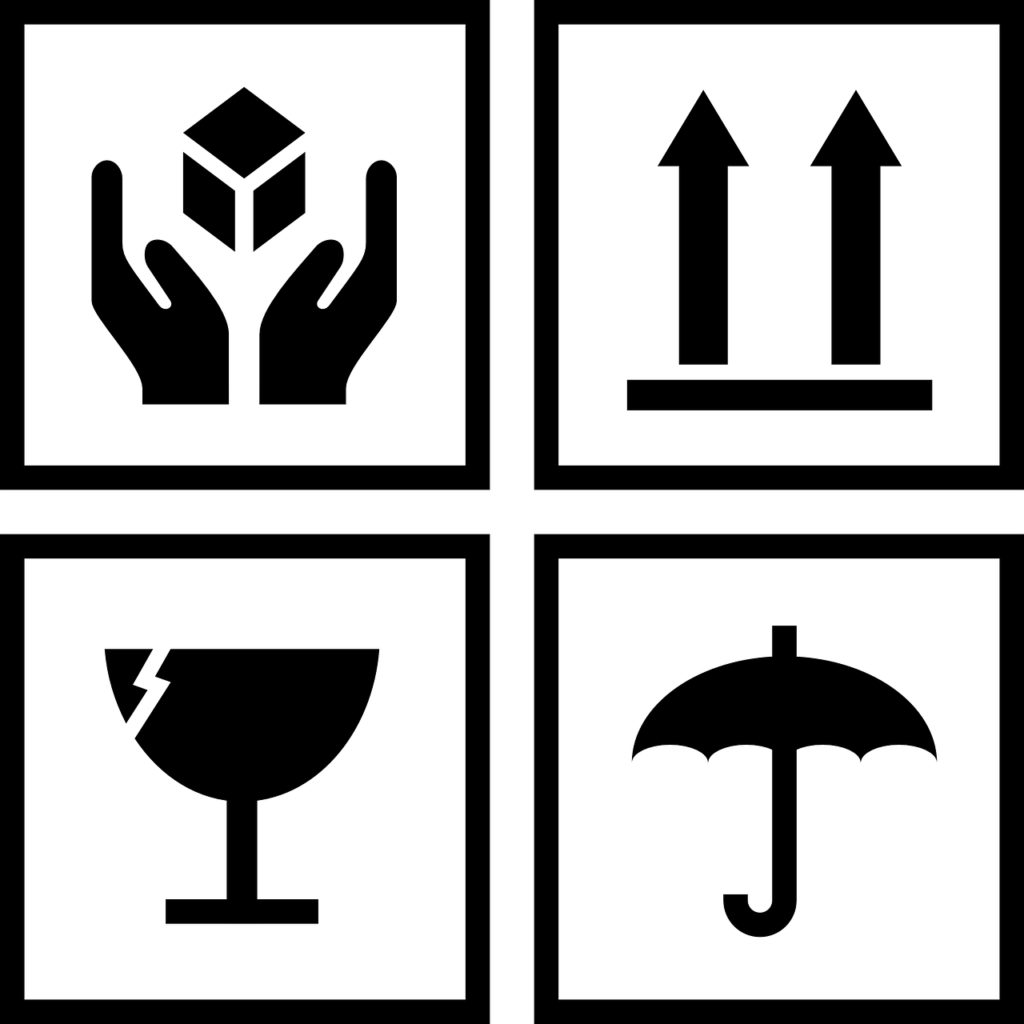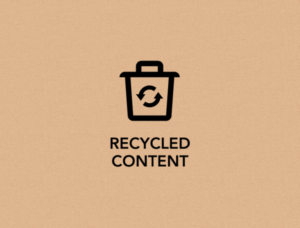What is the Role of Packaging Symbols in Sustainable Development


Subscribe now! Receive 15% discount.
Don’t miss out – get 15% off your first order when you join the newsletter. It’s fast, free, and kinda smart.
You're now subscribed!
In this article:
The recent spotlight on sustainable development and best practices has familiarised the consumer segment with more recyclable packaging symbols than ever. That's not surprising, given they received more attention in recent years, and for a good reason.
The eco-awareness of producers and consumers in the packaging industry is a vital touchpoint in sustainable development and needs to keep going up on the Y axis. Staying informed it's what does it.
However, there's more to packaging symbols than the Mobius loop. You may have also noticed a variety of transport icons, care icons and so on. And as intuitive as most of these packaging symbols may be, it's always good to know a little extra.

Table of contents
- A brief history of packaging symbols
- What's the role of recycling packaging symbols in sustainable development
- Copyright & usage regulations
- A list of recycling packaging symbols categories, icons & meaning
- The Eco labels in Packhelp explained
- Conclusion & complimentary readings
A brief history of packaging symbols
The most recognised packaging symbol in the world, the recycling symbol, was designed in 1970 at the initiative of The Container Corporation of America, the largest packaging producer in the US at the time.
With a reputation for being at the forefront of corporate graphic design, CCA organised a design competition for college students. The brief? "Create a packaging symbol for future use on products made from recycled paper."
The winning packaging symbol, designed by Gary Anderson, consisted of a triangle composed of three arrows looping back on themselves in a clockwise direction.
"When I sat down to enter the competition, I thought back to a field trip in elementary school to a newspaper office where we'd seen how paper was fed over rollers as printed. I drew on that image — the three arrows in my final sketch look like strips of folded-over paper." - Anderson, G for Financial Times.

The 1970 design competition gave a winning symbol that would be in the public domain for future sustainable development and the introduction of all packaging icons we know and use today. How are packaging symbols relevant for sustainable development, you wonder? Let's discover.
A simple, sustainable development definition
What is sustainable development?
Although there are various definitions, one more comprehensive than the other, the Brundtland Commission's sustainable development definition is the most frequently used. Let's deconstruct it together.
The two key words when discussing sustainable development are progress and preservation.
A guiding principle of sustainable development is achieving human development goals while preserving the capacity of natural systems to supply the natural resources and ecosystem services that are essential to the economy and society.
 What's the role of packaging symbols in sustainable development?
What's the role of packaging symbols in sustainable development?
As Cerin P demonstrates in Ecological Economics, treating economic entities as separate would defeat sustainable development's purpose. In a nutshell, packaging symbols are part of both producer's and consumer's environmental responsibilities.
How is the sustainable development policy different from any conventional environmental policy?
One key element that sets these two apart is that where both focus on the externalities of ecological deterioration, sustainable development is set on saving resources for future generations.
In other words, sustainable development's primary objective is the long-term stability of the economy and environment. This can only be accomplished by including and acknowledging economic, environmental, and social issues throughout the decision-making process.
Copyright© & Trademark™ regulations of recycling packaging symbols
Please note that the files you see on this page are only intended for usage with the proper authorisation from the copyright holder or regulatory organisation. You must confirm that you have the right to use these logos and follow the proper usage instructions.
Packhelp provides and owns the rights for several packaging symbols, which you can explore for FREE when you open the Design Studio. Take me there!
Take me there!
A list of packaging symbols categories
There's more to packaging symbols than meets the eye, and while some icons look intuitive, others can be tough to read. For this purpose, trialling them into categories might do the trick for a bit of context. How many icons can you think of when reading the categories below?
- Recycling packaging symbols
- Food packaging symbols
- International box packaging symbols
- International medical packaging symbols
Which are the most common recycling packaging icons? ♻
These are the most popular recycling packaging symbols, and each can appear printed in different styles and accompanied by text with indications.
 |
Mobius Loop → arguably the most often used and recognised recycling symbol, the Mobius Loop, can also be shown with a percentage symbol in the centre. |
 |
Tidy-Man → the "Tidy-man" image serves as a reminder to properly dispose of the packaging. |
 |
Corrugated Recycles → the Corrugated Case Association created the free-to-use corrugated recycle logo to draw attention to the recyclable nature of cardboard packaging. |
The Eco labels in Packhelp explained
The eco-aware symbols are meant to inform, educate and support sustainable development for businesses and consumers alike.
Showcasing the right eco symbols on your packaging is not only vital for maintaining transparency and minimising greenwashing, but also for supporting a circular economy.
Packhelp provides a set of ready-to-use packaging icons which you can easily add to your design. See the list below ↓
1. Made in Europe → this symbol marks packaging manufactured in Europe, meaning a lower transportation footprint than goods produced and imported from abroad.

2. Biodegradable material → packaging marked with this symbol breaks down into natural elements when exposed to light, air, moisture and microbes.

3. Plastic-free → these products don't contain any petroleum-based plastics.

4. Recyclable → packaging marked with this symbol can be broken down and used as new material.

5. FSC® available → the Forest Stewardship Council or FSC® mark designates packaging items made of wood from responsibly managed forests. The use of this symbol calls for authorization or certification.

6. Recycled content → these packaging products contain at least 60% of recycled materials.

7. Reusable → packaging marked with this symbol is purposefully engineered and manufactured in a way that allows the product to be used again after fulfilling its original purpose.

Back to you
Using transit packaging symbols on your boxes can surprisingly positively affect how you conduct your business. Supply chain-wise, it saves time and ensures safety measurements for staff handling your parcels and the products inside.
From the classic Mobius Loop to privately owned eco-aware icons, these packaging symbols provide a more transparent approach to the way they conduct their sustainability initiatives.
Showcase these packaging icons correctly on your boxes and strengthen your business position now.
Complimentary readings
What Are Eco-Friendly Packaging Materials? A Simple 2022 Guide
Promote Your Eco-Friendly Packaging To Reach More Customers
Implementing Genuinely Sustainable Packaging In A Small Brand









